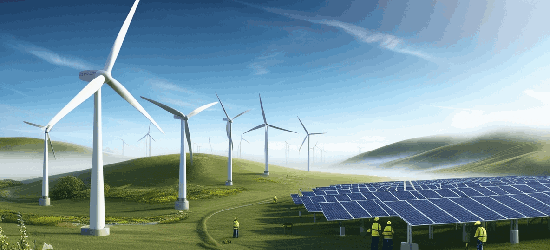Affordable clean energy key to India's accelerated energy transition

By Team Indoen
Posted on 20 Feb 2025
Tags: RE
New Delhi: Ensuring the affordability of clean energy remains the cornerstone of India’s rapid energy transition, industry and finance leaders emphasised at a key panel discussion during last week concluded India Energy Week 2025.
The experts highlighted that access to reasonably priced
capital and a robust investment ecosystem will be critical in achieving the
country’s ambitious renewable energy targets.
At the panel titled “Bridging the Energy Transition’s
Investment Gaps,” held on the second day of the summit, leaders from the
energy and financial sectors discussed the challenges and opportunities in
financing India’s clean energy transition.
Panellists included Hitesh Vaid, CFO, Cairn Oil and Gas;
Katan Hirachand, Chief Executive and Chief Country Officer, Societe Generale
Bank; Bhupinder Singh Bhalla, Former Secretary, Ministry of New and Renewable
Energy (MNRE); and Roberto Bocca, Head, Centre for Energy and Materials, World
Economic Forum.
Hitesh Vaid underscored the necessity of public-private
collaboration, emphasising that private investments will only flow if they
offer compelling returns. “Investment flows where efficiency and opportunity
align,” he noted, pointing to the importance of segmenting markets to meet both
urban and rural energy needs effectively.
Katan Hirachand stressed the importance of elevating project
standards to attract both domestic and foreign investment. “India has access to
capital, but affordability hinges on structured financing and risk mitigation,”
he said. He further highlighted the ‘energy trilemma’—balancing security,
sustainability, and affordability—as a key consideration for future energy
policies.
Bhupinder Singh Bhalla reaffirmed that consumer-centric
policies remain central to India’s clean energy drive. He outlined India’s
ambitious goal of producing five million metric tonnes of green hydrogen by
2030, backed by a dedicated Rs 20,000 crore budget through the National Green
Hydrogen Mission. “India is walking the talk on clean energy transition,” he
said, pointing to the country’s strong policy frameworks designed to foster
competition and transparency.
Roberto Bocca commended India’s ability to rapidly execute
large-scale energy projects with minimal bureaucratic delays. “Public-private
partnerships have been highly effective worldwide, but solutions must align
with each nation’s unique challenges,” he said. Bocca also highlighted how
emerging technologies in energy efficiency could significantly drive
sustainability while generating employment opportunities.
With India Energy Week 2025 serving as a vital forum for global energy discourse, experts at the event agreed that a collaborative approach between the public and private sectors will be necessary to ensure long-term sustainability and economic viability in the energy transition.
Kindly follow us for updates on:
- India’s renewable energy boom: Driving growth and green jobs
- Unlocking Investments To Achieve India’s 500 GW RE Target
- India Strengthens RE Storage with 10 GWh Battery Manufacturing Boost
- India Energy Week 2025: Highlighting India’s growing energy leadership
- India charts bold renewable energy future with 500 GW target by 2030
- India’s solar share to soar, RE set to power 27% of energy mix by 2027
- Major deals, energy policy shifts announced at India Energy Week 2025
- Powering India’s green energy future
- Budget 2025 increases allocation to green energy by 53%
- How to reboot India’s renewable energy sector